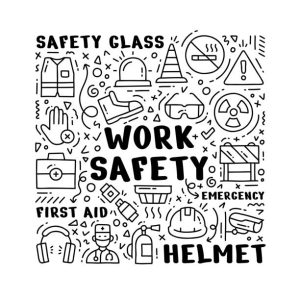
The toxic workplace, its harm and negative effects
In recent years the word ‘toxic’ has become a common way we describe harmful versions of otherwise positive things. It means that these positive things have picked up patterns and behaviors that negatively impact our lives. For example, toxic friendships involve being attached to a person who doesn’t genuinely care about you. Toxic positivity is when you are forced to always see the ‘upside’ and repress feelings of anger or sadness.3 Signs You Are In A Toxic Workplace is important reading for your well being.
Anything can become toxic, including the workplace. Here are three signs you’re in a toxic workplace and what you can do to change it.
1 – Your workplace is ‘one big family’
A lot of employers will initially dazzle you with their friendly smiles and promises of inclusion and support. They’ll tell you that everyone ‘looks out for each other’ and that they’re ‘like a family’. They say this to assure you that they don’t see you as a cog in the machine. They want you to feel like you can talk to them about anything and that they’ll have your back. (article on deceptive and misleading conduct click here)
When employers say this, they usually mean it. They will treat you like family. The employer might buy you a cake on their birthday and comfort you when tragedy hits. Your co-worker might run errands for you and confide in you about their personal life. You’ll feel like you really do belong to a second family, but family isn’t all sunshine and roses. These employers often also exhibit the ugly side of personal relationships.
In a toxic workplace, your employer and co-workers will see professional communication and personal opinions as the same thing. Constructive criticism is seen as a personal attack, and you’ll be punished for it. If you forget a small personal detail about a co-worker, they’ll start sabotaging your tasks to get back at you. When work gets busy, the employer will start guilt-tripping you into working longer, unpaid hours. They’ll say that you don’t care enough about them, that your family of co-workers will suffer because you’re being selfish. If everyone starts to hate you, eventually they’ll create an excuse to unfairly dismiss you.
What you can do
The workplace is exactly that, a place where you work. It’s not a family. The minute your employer starts blurring the lines between being colleagues and being a ‘family’, your alarm bells should be ringing. Either get yourself out of there before things get ugly or lead by example. Only ever criticize work itself, not your colleagues. Frame critique as suggestions for improvement instead of talking about why you think it’s a terrible idea. Don’t participate in office gossip or say anything about your co-workers’ behaviour that isn’t related to work.
If all else fails, it might be best to move on. Better to save yourself than go down with the family ship.

2 – Informal meetings and frequent ‘chats’
Workplace meetings are very important. They allow colleagues to keep each other informed about what’s happening in other parts of the company. They also provide opportunities for employees to give and receive useful feedback.
When a formal meeting is scheduled, you know what you’re walking into. Meetings have agendas, designated speakers, and someone taking notes about everything that is discussed. When the meeting ends, everyone should walk away knowing what tasks they need to complete.
Toxic employers tend to prefer ‘having a chat’, or ‘catching up’ with their employees. In some cases, this can be a good thing. ‘Chats’ are useful when you need to discuss a sensitive topic or personal matter. Nobody needs to read meeting minutes about you leaving work 30 minutes early to take your kid to the doctor. Toxic employers will turn these chats into discussions about important work issues. They’ll take you out for coffee and casually tell you that you’re being demoted. They’ll walk into your team’s office space and briefly mention a huge restructure. A lot of unfair dismissal claims arise because an employer calls someone into their office for a ‘chat’. Once inside, they fire them on the spot without warning or reason.

What you can do
If you’re in a workplace that favours informal catchups to formal meetings, your job is more likely to be at risk. Formal meetings mean that colleagues can hold each other accountable because there are notes about what exactly was discussed. Meetings scheduled in advance give you time to prepare and think carefully about how to professionally approach issues. Informal catchups mean no accountability and heat-of-the-moment arguments that could get you into trouble.
It can be very difficult to avoid these chats and catchups turning into workplace problems. If a colleague wants to talk to you one-on-one, ask them what it’s about before agreeing. However if it’s not work related, let them know you can chat during lunch. If it’s work related but they won’t tell you what it’s about, say you just want to be prepared. Tell them you want to be able to address whatever it is they want to discuss. You can’t be helpful if you don’t know what it’s about.
If someone tricks you into discussing important work-related issues in an informal setting, write everything down. This could be vital if you are unfairly dismissed. You should also talk to Human Resources about any colleagues doing this to you as soon as possible. This way, if something goes wrong later, the company can’t say they didn’t know about the problem.

3 – The majority of employees have been there for a very long time
Many people will tell you that it’s a good thing if employees stick with the same company their whole careers. These people aren’t necessarily wrong. When employees stay with one company for a long time, it can show that it’s a great place to work. It can show that the company accommodates people at different stages of life. It can show they care about your professional development and helping you climb the ranks.
These people will say it’s actually the companies with a high turnover rate that you need to watch out for. This is also true, but low and high turnover rates are not mutually exclusive. Often a company has a high turnover rate because the long-standing employees bully new employees out.
A toxic workplace may have a core group of employees that have all been with the company for over 15 years. These employees have known each other their whole careers and likely have close personal as well as professional relationships. This means they will likely exhibit a lot of the ‘one big family’ toxic traits. However, unlike the one big family, they will not want you to join them. You will be the cog running their family machine.

Employees can feel threatened
The longer employees stay with one company, the more comfortable they get in their position. This is especially true for employees who have not been promoted or become senior managers. Less senior employees will feel threatened by you joining, especially if you out-perform them in a similar role.
They are more likely to actively stop you from implementing innovative new ideas because they didn’t think of them first. These employees will do anything to make you look bad so that you’re less likely to take their job. They’ll gossip about you and gang up against you, framing you for serious misconduct if they want you gone.
What you can do
It can be very hard to know which of these older employees will be your friend or foe. Since you’re not already in their clique, they probably aren’t going to tell you what they think of you. They might all decide you’re fantastic and help you succeed, or they’ll despise you and make your life miserable. It’s impossible to say.
The best you can do is be as easy to work with as possible and make an effort to get to know these long-time employees. Ask them about their weekend, find common interests, praise their hard work. You have no control over how they’ll interpret your actions, but you’ll know you’ve done your part. If you’re sensing that things are going sour, consider finding a new employer before they have a chance to bully you out.

What if I’m a toxic colleague?
If you’re reading this and noticing that you participate in these toxic workplace activities, it’s not too late to change. Look at your current workplace environment and try to assess where you stand. Are you the one spreading gossip? Have you let others bully people and stayed quiet? Do you have written records of important interactions? Others might report you for bullying or misconduct and your employer might decide to terminate you. Identify these potentially toxic issues now and put a stop to them.
Once you start making a genuine effort to promote a safe and inclusive workplace, you’ll be in the clear. If you’re just one of many people sustaining a toxic environment, consider talking to higher-ups about your concerns. They might listen, or they might retaliate. In any case, if the toxic environment refuses to change, you’d best get yourself out of it.
Conclusion to: 3 Signs You Are In A Toxic Workplace
All Fair work matters, all workplace matters we are here for you. workplace environments can be so complicated, the dynamics of the different personalities involved. Get advice, its important to work out what your options are. I do like the ‘2% Way’: Book about working on yourself. Better people make better workplaces. Where you fit in is up to you. I hope you like the articles not just another story who got sacked and how much money they got. I’m writing on a diversified list of topics to enable you, to empower you for the workplace and a better life.






